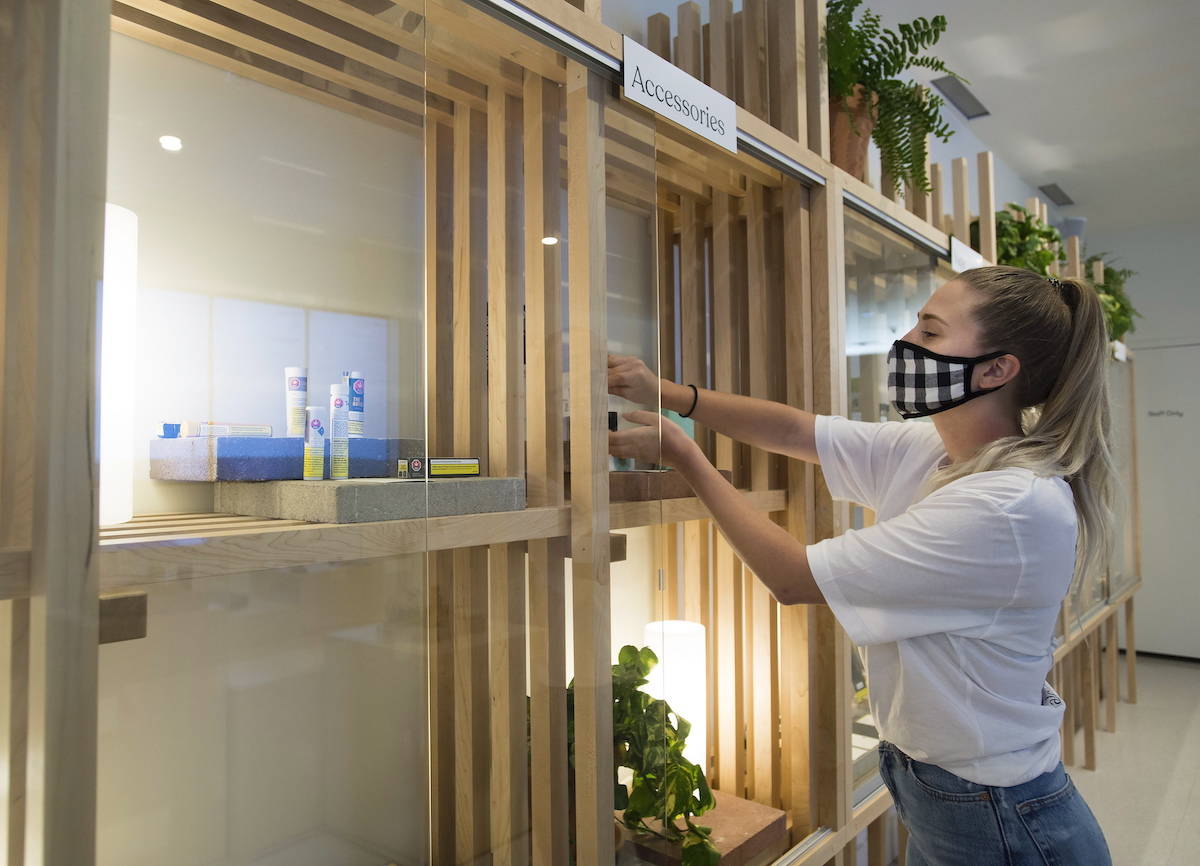By Tara Deschamps
Canadian Press
TORONTO — When hospitality business Donnelly Group rang in the new year, opening two Hobo Cannabis Company stores in March and April were top priorities.
But shortly after it hired and trained 80 employees for the Ottawa stores and readied pot products to fill their shelves, trouble arrived: COVID-19.
“Just as quickly as we opened those two Ottawa locations, we had to close them because cannabis stores were delisted from the essential businesses list,” said Harrison Stoker, Donnelly’s vice-president of brand.
“We were super nervous. Our opening journey in Ontario has been anxiety-filled.”
The company scrambled to launch curbside pickup and delivery and tentatively layoff their new workers. To complicate matters further, Hobo opened another cannabis store in late May at Toronto’s Yonge-Dundas Square, but it too had to close temporarily as a precaution during anti-Black racism protests at the start of June.
Suddenly, Hobo and dozens of other cannabis companies across the country who were wading into pot retail just as the pandemic hit found themselves in trouble.
Stores in many provinces were forced to shut their doors to stop the spread of COVID-19 and licensed producers were busy laying off hundreds of workers as they struggled to stay afloat.
It was a very different outlook than the one anticipated by entrepreneurs, who had been plotting shop openings for months if not years.
“The pandemic was not in the plan and I don’t think I was the only one caught off guard,” said Corey Gillon, chief executive of Choom Holdings Inc., who opened a store on May 15 at the Olympic Village in Vancouver.
A handful of stores sprouted up alongside Gillon’s in B.C.
In Alberta, officials said 36 new private retailers opened between March 16 and June 11, bringing the provincial total to 469.
Over in Ontario, where restrictions were eased to allow another wave of entrepreneurs to open cannabis stores, the province’s alcohol and gaming commission said customers were welcomed to 13 stores in March and April.
Twenty-nine also received retail store authorization, which allows them to start buying product but requires them to pass further inspections before opening.
At the end of May, Alchemy Canna Co. joined the fold with a store fashioned out of a shipping container in Toronto.
“To open up and get a big crowd in front of your store is pretty tough, even without a pandemic,” said Richard Browne, Alchemy’s chief executive, who tried to drum up business with gift bag and bike giveaways.
“People are still staying at home and are not really used to going outside of their houses unless it’s for groceries.
Browne also had the challenge of dealing with an employee who tested positive for COVID-19.
He had to close the store temporarily, delay the opening and get all the staff tested twice.
“Everything is a-okay now, but it got us into the frame of mind that we have to be extra, extra careful moving forward,” he said.
Staff are being vigilant about wearing gloves, doing deep store cleanings and wiping off customer touchpoints as much as possible.
Those measures were also on the mind of John Arbuthnot, the chief executive of Winnipeg-based Delta 9 Cannabis Inc.
In the early days of COVID, he rushed to get Plexiglas barriers for a store he opened on June 10 in Calgary’s First Alberta Place.
“We got in before the grocery stores and missed the shortage of those materials,” he said, just an hour after his shop welcomed guests for the first time.
Usually, opening day brings senior management to town, but COVID-19 travel restrictions meant no team from head office was on hand.
Aside from travel, Arbuthnot said the biggest headache Delta 9 faced was shipping delays on everything from furniture to ancillary products.
It’s an obstacle Gillon knows well. As the pandemic ravaged Canada, he accepted that the large piece of millwork he hoped would grace Choom’s store would probably not show up on time necause it was trapped in Ontario.
But Gillon still counts Choom as lucky. Most of its stores are in Alberta and B.C., where businesses reopened sooner because COVID-19 cases pale in comparison to Ontario and Quebec.
“Overall, there was a bit of delays here and there but nothing that really threw us off too much,” he said.
Mimi Lam has faced far more challenges as she works towards opening a trio of Superette stores with diner- and deli-style flourishes in Toronto this summer.
Because of COVID-19, she has encountered construction delays on the stores and job fairs, onboarding and training have all had to move online.
“Typically retail store setups require hands on deck, but we are staggering our setup over two weeks to limit how many team members are in-store at a time,” she said in an email.
Even inspections are being done virtually, but she’s still enthusiastic about being a cannabis store operator.
Browne is too. He said he has no regrets about opening during a pandemic.
“You have to have to figure out whether it’s worth it for you to rush into opening up during the pandemic, but I think it is all worth it.”

